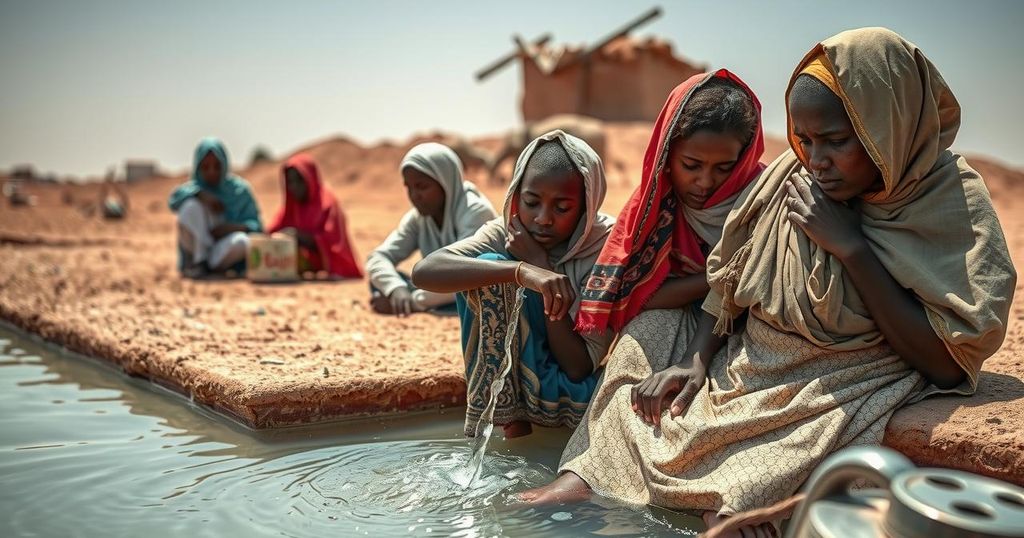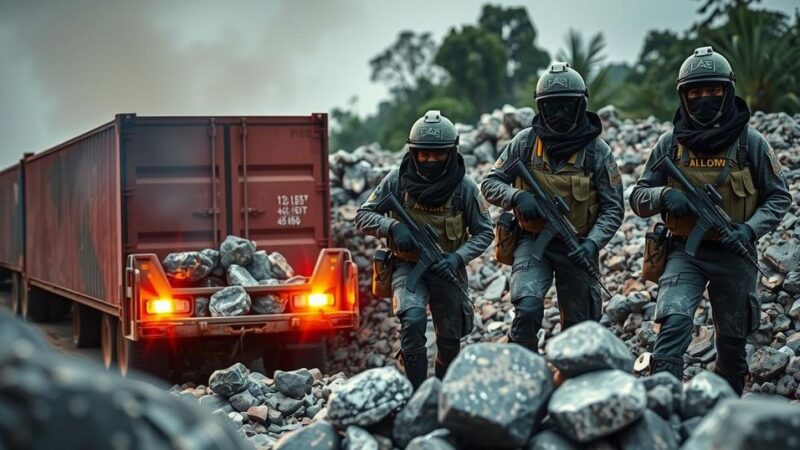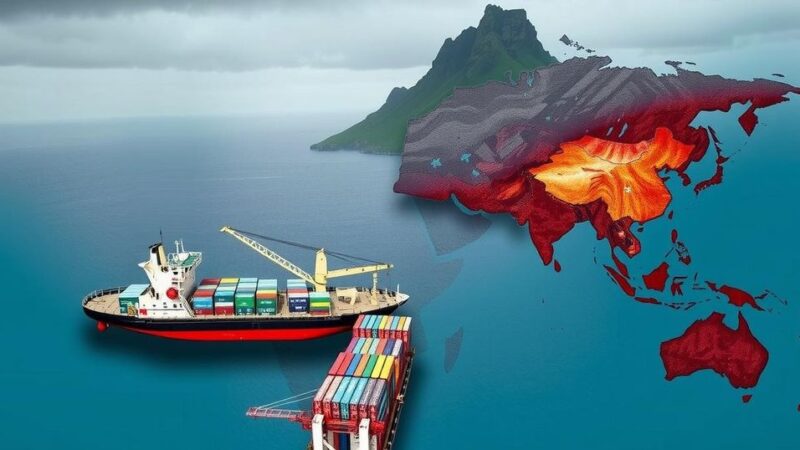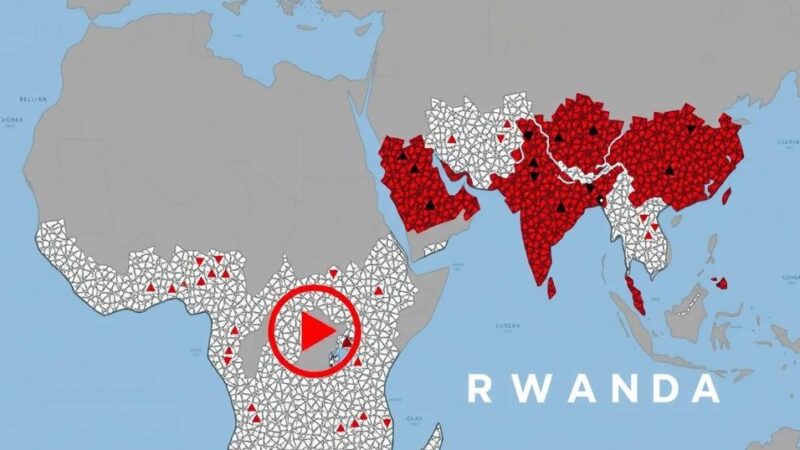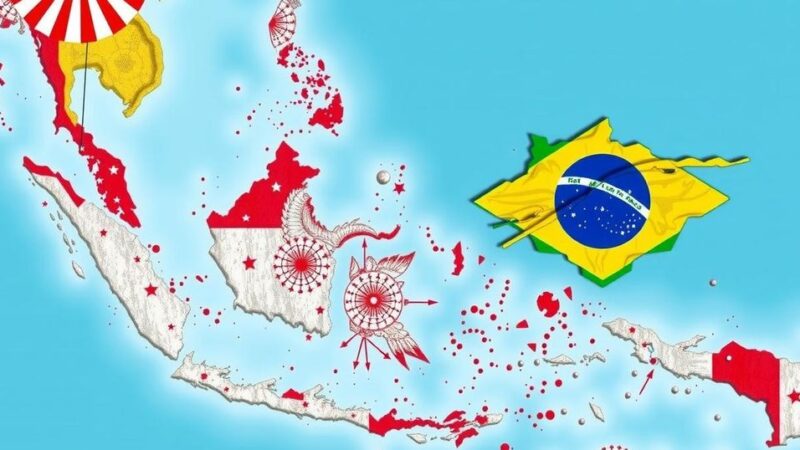Sudanese refugees in Chad are facing critical water shortages, particularly in Tongori camp, where they receive insufficient clean water. Recent relocations due to local tensions have exacerbated conditions. The UNHCR reports over 600,000 Sudanese refugees in Chad, appealing for urgent aid to address their dire needs.
Sudanese refugees in Chad face severe water shortages, particularly in the Tongori camp. After enduring violence in El Geneina, Aisha Adam Ishag arrived at the camp only to encounter compounded hardships due to a lack of safe drinking water. Currently, she and fellow refugees receive only a meager daily ration of 60 liters, forcing them to source water from polluted areas. The local authorities have forcibly relocated many refugees to this remote site amid tensions over land. In addition to Aisha, other refugees, including Fatima Adam Idris and Amira Mostafa, express their distress over inadequate services, particularly safe drinking water, making their already difficult lives even more challenging in the harsh conditions of the camp. The UNHCR reports that Chad hosts over 600,000 Sudanese refugees, and has recently called for aid to address this dire situation.
The ongoing crisis of Sudanese refugees in Chad highlights significant humanitarian challenges faced by displaced individuals. The current influx of refugees into camps like Tongori, precipitated by conflicts in the Darfur region, exacerbates existing issues related to resource scarcity. The history of violence in Sudan and previous waves of displacement have compounded the difficulties faced by refugees, who now struggle to access basic necessities, including water. This demographic shift has strained relations with host communities, further complicating the provision of necessary services.
The situation of Sudanese refugees in Chad, particularly in the Tongori camp, illustrates the urgent need for humanitarian assistance in areas where basic services like water and food are nearly nonexistent. The forced relocation of refugees to remote areas without adequate resources or support exacerbates their plight. Continued advocacy and support from humanitarian organizations are crucial to improving the living conditions of these vulnerable populations and preventing further suffering.
Original Source: www.dabangasudan.org

